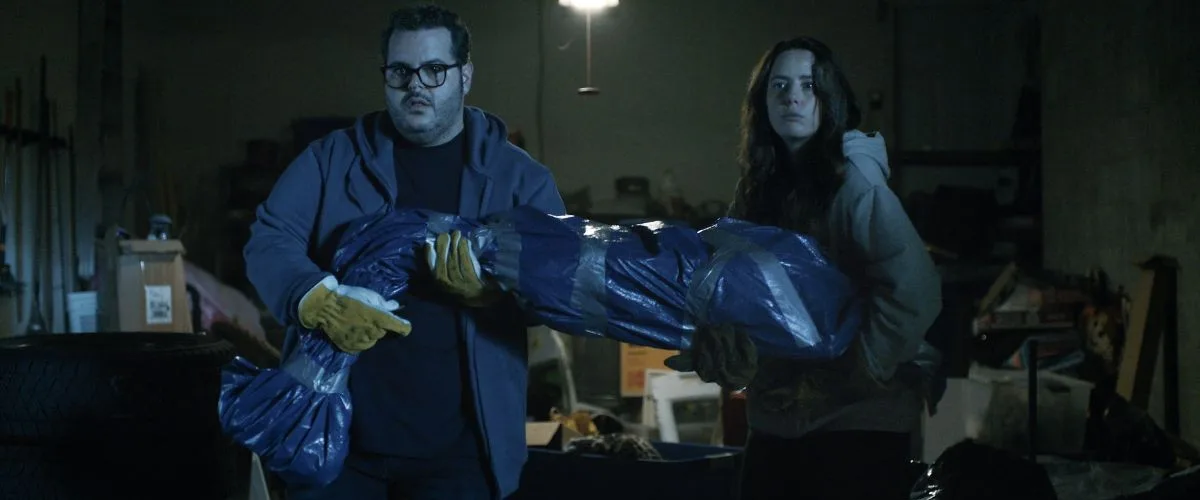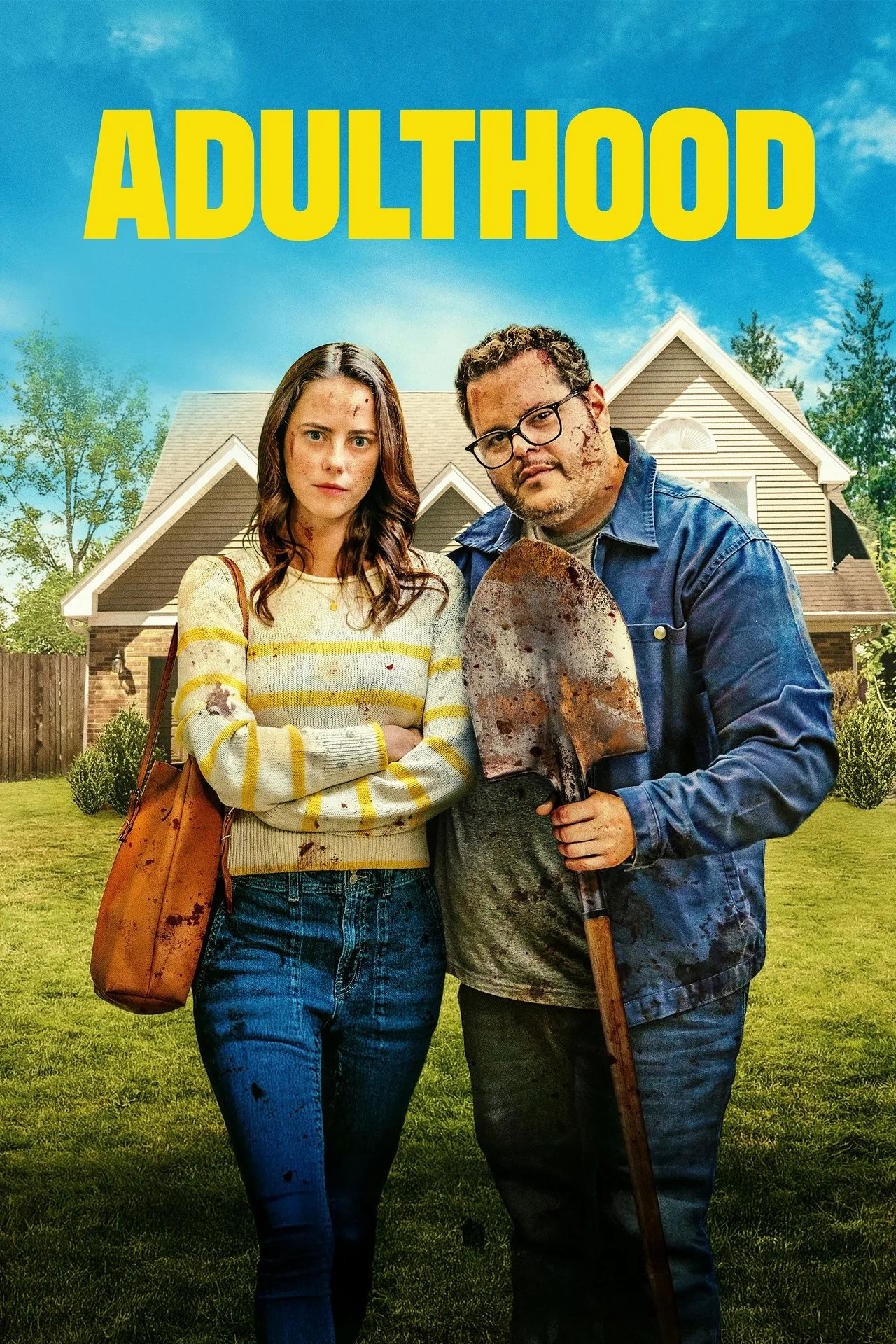If the movies have already made growing up seem like hell, director Alex Winter’s dispiritedly cynical but rousingly comical “Adulthood” reminds us that there’s always a tenth circle to that inferno. This smalltown neo-noir hits all the familiar genre beats–sans a wickedly anarchic denouement featuring swords and a crossbow–as it spins a dispiriting yarn about how children have to not only pay for the sins of their fathers and mothers, but they can also keep adding to the ledger. As bleak as that premise may be, Winter’s film understands that sometimes there’s nothing more exhilarating than witnessing humans do what they do best: make bad situations worse.
Indeed, the simultaneous comedy and melancholy of “Adulthood” is seeing its characters increasingly push themselves to the point of no return. We first meet siblings Meg (Kaya Scodelario) and Noah (Josh Gad) after their mother is hospitalized due to a stroke. When they show up at her place to clean out her things, they realize that their parents’ secrets are literally both buried and hit close to home, discovering the skeleton of their neighbor who had gone missing many years ago in the walls of the basement. With their mom hospitalized and their dad having passed away, Noah and Meg try to find a way to dispose of the body discreetly, but their efforts draw the attention of not only the local authorities but also an opportunistic babysitter (Billie Lourd) and a cousin (Anthony Carrigan) who is eager to get into the business of Meg and Noah’s lives.
This isn’t a film about bad people becoming good or good people becoming bad; it’s about people who, when allowed to redeem themselves or do the right thing, choose violence instead. In life, there are only so many moments where people are put in situations that become a nexus to live into the ideals they espouse; depressingly and hilariously, at every turn, Meg and Noah always embark on the most destructive course of action. It’s this continuous escalation of malfeasance that gives “Adulthood” its wicked tempo and disquieting thrills.
As the bodies fall, the excuses become more elaborate, and Meg and Noah feel an increasing pressure to maintain their secret at all costs, “Adulthood” morphs into a disquieting commentary about the cost of silence and the artifice of the suburbs. It’s haunting the way Cinematographer Christopher Mably frames the small town, emphasizing the shallow vastness of its fenced-off houses or fields. Everyone has grotesque secrets waiting in the wings for unveiling; Meg and Noah are simply a little sloppier in their obfuscation. Likewise, editor Sandy Pereira frequently intercuts moments of grisly outburst with stock video footage of people doing suburbanite tasks: kids playing soccer and people going grocery shopping, as if to say that the horrific and serene co-exist. We shouldn’t so easily trust the harmony we see.
The film is also mordantly funny, specifically in the ways Michael M.B. Galvin’s script taps into the uniquely human ability to render the uncanny familiar (killing your third victim is always easier than the second). While Meg and Noah’s combined fluster is humorous, it morphs into something sardonic as their ductility means they’re willing to do anything at all costs to keep a secret. Their characters also defy easy classification. While the siblings are right to hold bitterness towards their parents for their sins, the hard part of adulting is having to accept that we’re also responsible for our actions. When does righteous criticism morph into self-absorbed victimizing? It’s a tension that Galvin’s script isn’t content to let his characters evade from easily.
Scodelario and Gad complement each other’s freak to terrifying effect as well. Gad thrives at wearing his emotions openly and often gets the best gags (a moment such as the way he grips the gun with only three fingers, barrel pointing down, showcases his inexperience and also gentleness). Scodelario has the opportunity to chameleon a little more. We don’t know her next move, and that’s thrilling and alarming; is she too bored by the suburbs and gets a high off of the novel experience of murder? To her credit, Scodelario keeps enough mystery and fear marinating underneath her eyes to make her an unpredictable watch.
In one scene, right before everything goes completely haywire, Meg steps out of her house for some fresh air. She stoops down to look at the flowers near the entryway, and the camera’s positioning makes it look like a double exposure, with the colorful pedals looking imprinted on Meg’s face. She then abruptly stands up and yells, “Mother f*cking cocksucker!” There’s no more appropriate image of adulting than that. Life becomes a series of repetitive obligations, draining responsibilities, punctuated by brief moments of peace and wonder, before we’re all dragged into the abyss again. Parents often hope that their kids will fare better than themselves; “Adulthood” says that we should count ourselves fortunate if we become just like them.
This review was filed from the Toronto International Film Festival. It will be released in select theaters on September 19, 2025.




















